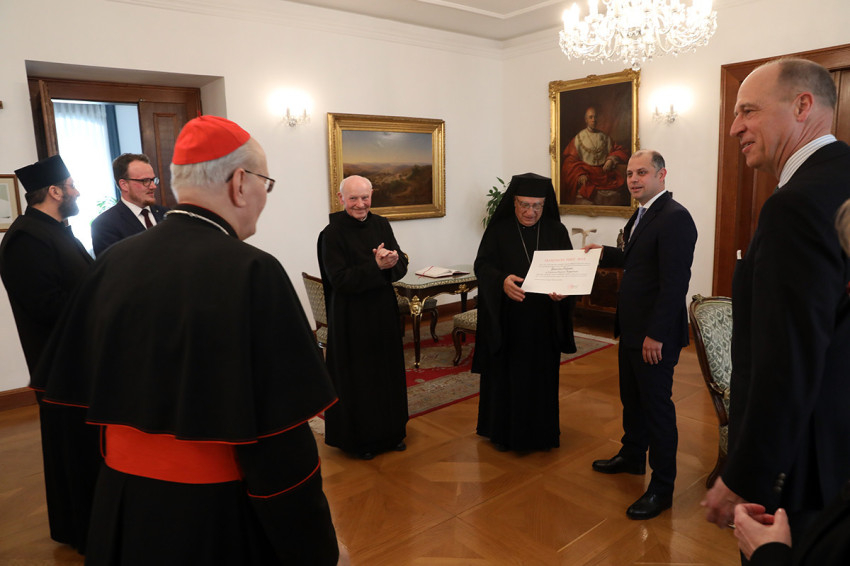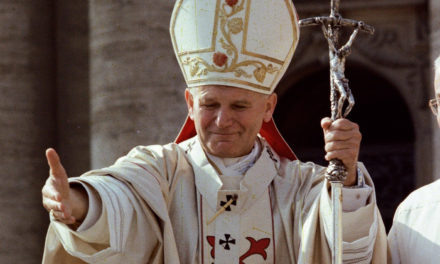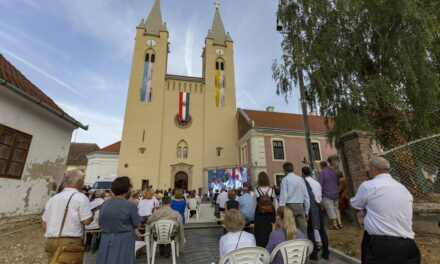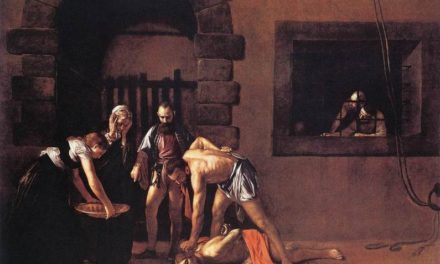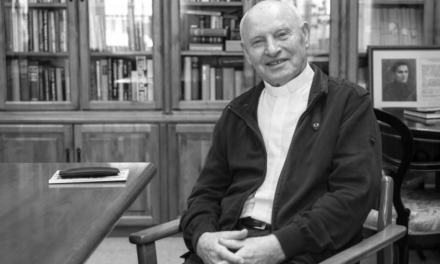Pope Francis awarded Dániel Solymári, the head of international relations of the Hungarian Maltese Charity Service, the oldest award of the Holy See to lay persons. The Knight's Cross of the Order of Saint Sylvester was presented by Cardinal Péter Erdő, Primate, and Syrian Melkite Greek Catholic Patriarch Jusszef Abszi on March 17, in Budapest, in the Primate's Palace.
With the award, Pope Francis recognized Dániel Solymári's outstanding work for the international relations of the Holy Father and the Holy See, especially his achievements in the field of international aid and humanitarian diplomacy.
The Knight's Cross of the Order of Saint Sylvester is a state award of the Holy See, which is awarded directly by the Pope. This is the oldest award of the Holy Apostolic See that can be given to lay persons, which is granted by the Holy Father in recognition of the service performed for the Church and its international relations. Its first form II. Founded by Pope Saint Sylvester under the name Order of the Golden Spike, it was founded in the 16th century. In 1841, Pope Gregory revived it as the Order of St. Sylvester, and its members were called Lateran Court Counts. Its current form was created in 1905 by Pope Saint Pius X.
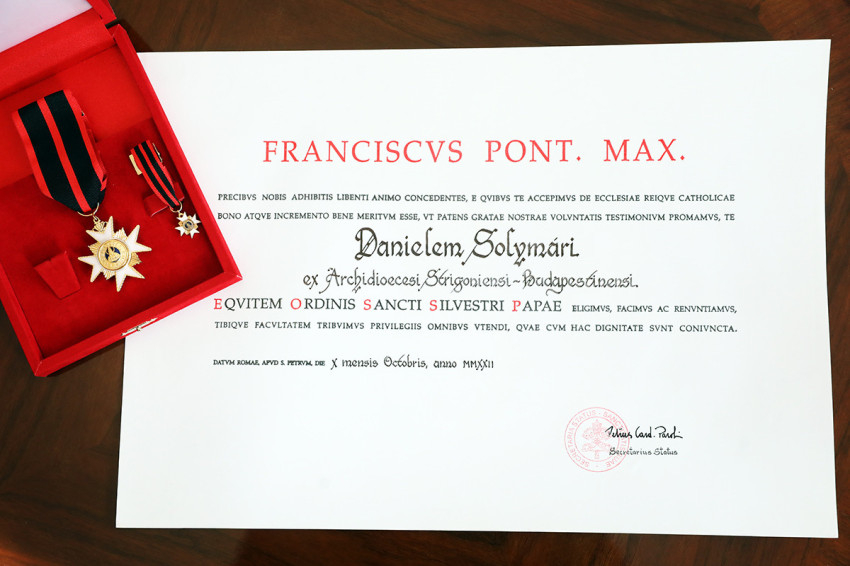
Source: Hungarian Courier
The Knight's Cross of the Order of St. Sylvester, as a papal insignia, is one of the rarest awarded awards. According to the documents available since 1945, less than ten Hungarians have received this recognition, of whom the forty-year-old Dániel Solymári is the youngest. The presentation of the papal award, which took place on March 17, was timed to prepare for the upcoming apostolic journey of Pope Francis to Hungary.
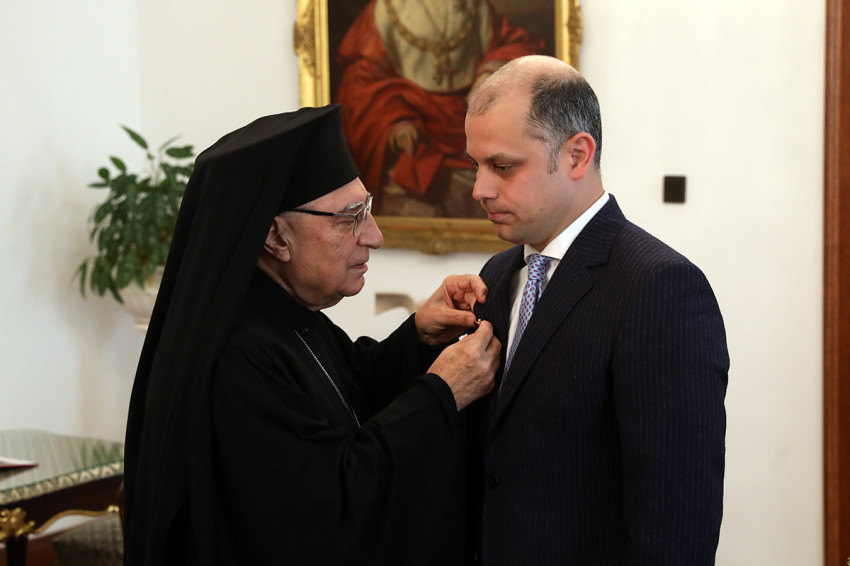
Source: Syrian Melkite Greek Catholic Patriarch Yussef Absi lights the badge/Source: Magyar Kurír
Dániel Solymári completed his higher education in Hungary and then in the United Kingdom, majoring in theology and international relations. He has been volunteering at the Hungarian Maltese Charity Service since he was young, has been a full-time employee of the organization since 2010, and is currently its manager responsible for international relations.
He worked on four continents in man-made and natural crises, slums, refugee camps, and civil wars. He considers his vocation to catch up with the human "fringe areas", to create more dignified living conditions for those "left on their own", as well as the written reflection capable of all this. Member and diplomat of the Sovereign Order of Malta.
Source and image: Magyar Kurír

